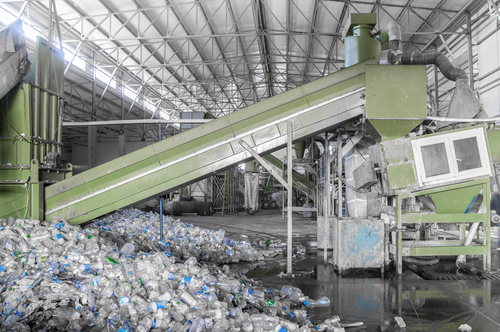
A bill that could bring new jobs to Pennsylvania by changing the classification of advanced plastics recycling facilities in the state to “manufacturing” was among the pieces of legislation that Gov. Tom Wolf approved as the Thanksgiving holiday began.
Wolf signed a number of bills on Nov. 25, including House Bill 1808, which supporters say will smooth the path toward a new surge in recycling that will generate new jobs and also tackle the growth of plastic waste in the state, but make a potential dent in climate change as well.
“This measure offers an innovative way to manage hard-to-recycle plastics, which will not only reduce waste but also support an emerging recycling industry,” Wolf said in a release.
The bill, supporters said, will make Pennsylvania a more attractive location for companies to deploy an advanced heat-based recycling process. The process, known as pyrolysis, uses heat to break down types of plastics that currently are not handled by conventional facilities that are limited to so-called No. 1 and 2 plastics, generally milk jugs and various beverage bottled. An advanced facility takes in Nos. 3-7 plastics, such as bags and packaging materials. The heated plastics are broken down into compounds such as resins and waxes that can be used to create new plastics and even transportation fuels.
The American Chemistry Council estimated that running 25 percent of the recoverable plastic in Pennsylvania would support as many as 10 advanced recycling plants with a value of $314 million in new economic output every year.
“Recycling and recovery technologies represent an emerging market and provide the ability to remove plastics from the waste stream by converting them into valuable feedstock for new materials,” said bill sponsor Rep. Ryan Mackenzie (R-Lehigh/Berks). “Treating post-use plastics as raw materials for manufacturing instead of waste will remove the barriers of misclassifying this emerging industry and promote continued innovation and investment. The current law does not clearly classify these new technologies as manufacturing and this new law will provide regulatory certainty as the post-use plastics and recycling industry grows.
Under HB 1808, the plastics involved will not be classified as solid waste and the process is not technically incineration since it takes place within a closed system and there is no oxygen involved in the process nor any emissions. And by being labeled a manufacturing plant instead of a recycling plant, investors will not have to clear regulatory hurdles associated with waste incinerators. The plants, however, will still have to comply with applicable regulations set down by the Environmental Protection Agency and the state Department of Environmental Protection.
“These technologies extend the product life cycle and are providing a free-market solution to help address a global and domestic challenge of waste management,” said Abby Foster, president of the Pennsylvania Chemical Industry Council (PCIC). “Pennsylvania is fortunate to have a strong and growing petrochemical and plastics market, and potentially now an advanced recycling market.”